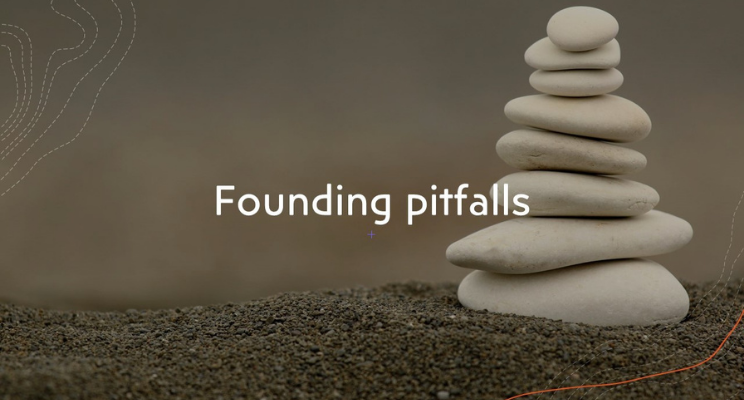The founding or startup phase can be one of the most exciting times to be a part of an organization – for those who thrive on chaos, have an entrepreneurial spirit and a dream. For those who like stability. process and clear direction, not so much. Startup operations can be disorganized and chaotic.
Virtually all associations and nonprofit organizations start with either a single individual or small group of individuals passionate about starting something. No organization starts off with policies, procedures, organized filing systems, clear goals and objectives, and well-trained staff and volunteers.
Though not necessarily strategic, a founding board of directors is highly mission-driven. Even if the vision and mission aren’t in writing, at minimum the founders are selling an idea. Often with little or no budget, volunteers, staff, or structure, a founding organization can inspire people to take up a cause and create something meaningful.
A key responsibility of a founder is to empower others to take ownership of the organization so that the organization can continue to thrive on its own with or without the founder. That said, not all founders find it easy to let go or to trust others to carry the mantle. When that is the case, the board needs to consider the best interests of the organization and it’s long-term needs, rather than stay passive in deference to the founder(s).
Founder Pitfalls
Ultimately, an organization’s board of directors must take ownership of the organization’s future, which includes assuring the organization has the right leadership. This board role can be complicated in organizations where the founder(s) may enjoy a larger-than-life status. Here are some potential pitfalls for startup organizations:
-
-
- Lack of Management Skills: The founder may be someone whose skills are selling a dream, building passion and excitement for a cause, but not whose skills are directing. managing and organizing. If a founder who lacks management skills continues to run the organization beyond the founding stage, then the board may need to make a difficult decision either to remove or repurpose the founder. This action usually isn’t taken until later in the organization’s development — but often much later than it should. Failure to address founder challenges early on will likely prove increasingly difficult and potentially destructive as the organization matures.
- Patron Saint Syndrome: Sometimes a “founder” may not be someone who actually started the organization but one who through great personal effort brought it to life. This path leads to a pitfall we call the “Patron Saint Syndrome.” Because of the “countless hours” the Patron Saint dedicated to nurturing the organization and the sacrifices they made, they are viewed as indispensable and, regardless of whether in reality they are the right person for the long-term success of the organization, they enjoy an untouchable status.
- Lack of Boundaries: Close personal relationships between the founder and the board members — often selected precisely because of their relationship to the founder — is another potential pitfall. The trials of founding can be a highly bonding experience. But those close bonds may lead to an inability of the board to view its proper relationship with the founder to be that of employer to employee if the founder is serving as staff leadership or peer-to-peer if the founder serves on the board or in some other volunteer leadership capacity. In fact, the board may see itself as subordinate and beholden to the founder. The founder is simply one voice among many unless the organization’s bylaws state otherwise.
- Undue Influence: A board may use the founder’s charisma or some other particularly strong skillset as justification for treating the founder as untouchable, even when the founder is the cause of significant organizational dysfunction. The founder may have powerful political connections, influence over the power players in the organization, or be the “face” of the cause to the public. In spite of this, the board should not avoid exercising its fiduciary responsibility to act in the best interest of the organization and address the challenging behavior.
-
In short, a founder should cease to wield undue influence over the organization past the founding stage. The longer a founder is seen as the heart and soul of the organization and is deferred to in all major organizational decisions, the more difficult it will be for the board to take ownership of the direction of the organization, as it should.
Most associations/nonprofit organizations are created to serve their mission in perpetuity. Being human and having finite lifespans, founders won’t be around forever. Thus, the board must strive to be led by the mission, not by a cult of personality.
For more information on Founding Boards and other invaluable governance guidance, download a free copy of The rEvolutionary Governance® Handbook.
About the Author
 Jeff Arnold, MAM, CAE, is CEO of Leading Associations which supports professional associations by bringing a full spectrum of board, management and operational solutions that help them work through challenges that inhibit progress, and grow membership.
Jeff Arnold, MAM, CAE, is CEO of Leading Associations which supports professional associations by bringing a full spectrum of board, management and operational solutions that help them work through challenges that inhibit progress, and grow membership.
Jeff brings a combination of association experience and formal education to Leading Associations’ clients. His present responsibilities include dealing with both the strategic and tactical aspects of running associations. His special areas of expertise include working with boards and committees, certification, training programs, and membership systems. You can reach Jeff on LinkedIn or via email.

